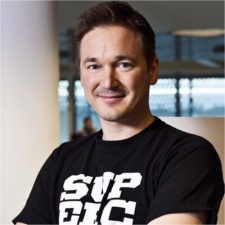Ilkka Paananen, CEO of Supercell has released his annual blog post and in the process revealed the inner workings of the Finnish mobile gaming giant.
Among many key insights, including a glimpse into the company’s outside investments, internal culture and their well-known practice of releasing and closing games in the search for a new hit, Paananen laid out what he believed to be the “defining challenge” for Supercell and mobile gaming as a whole.
Here comes a new challenger
“I believe this two-pronged problem is the defining challenge for game companies over the next decade. It certainly is Supercell’s," he explained, spelling out those two prongs as:
- “We always have to figure out how to create ANOTHER great new game. (And IF we do, then make it better!)"
- "We have to keep making that first live game better every day, week, month, and year…forever.”
So, already, the defining challenge is a difficult one. But Paananen is confident that Supercell has not just the formula to achieve more hits but the initiative to look into the future and keep them coming.
How to tackle it?
For Paananen the key to tackling the challenge is not in data or even in design, but in variety and continuous hard work.
He lays out two parts of this challenge: “Challenge 1: Creating Great New Games, That Have A Shot At Becoming Cultural Phenomena.“ Covering all manner of Supercell’s extensive design process, such as the splitting of their team into smaller “cells” that concentrate on specific projects, their utilisation of developer intuition and experience, then finally their pursuit of innovation.
While this part may read like wishful thinking - and coming from anyone else it might be - but coming from the CEO of a multi-million dollar studio he's well placed to offer his advice.
The next part is, “Challenge 2: Serving Players in a Live Game They Love, So It’s Played and Remembered Forever” touches on the key fact that Supercell has to manage what all other companies from small indie developers to massive conglomerates have to deal with - the multitude of factors which go into managing and improving a live game.
To do this Paananen lays out three key considerations, and factors for how to deal with them.
- Catering to new players vs long-term existing ones
- Predictable changes vs riskier ones
- Improve what's there vs add new things
- Respecting vs challenging the game's legacy
Supercell manages these considerations in a variety of ways. From understanding “What players truly want (not what they say they want),” and interpreting their needs using developer intuition, to building a diverse team. “Ideally, the team should reflect players, including some newbies and some old timers.” And finally, treating the game as an “holistic experience.”
“As custodians of the game for the players, team members have to serve player needs. Sometimes this means doing things that aren't exciting, but the responsibility is still to do those things.”
So these are the key challenges, but how does this work alogside Supercell’s ruthless style of development? There’s a saying in art “kill your darlings,” and Supercell are the truly the darling killers…
The Supercell slaughterhouse
Supercell’s rapid, small-scale development has often found many players disappointed to see a unique new game shut down. And Paananen admits that such culls have been especially extensive for Supercell. “This approach isn’t flawless. We have launched five hit games but we have killed 30+, by my latest count. We haven’t launched a new game globally since Brawl Stars on December 12, 2018. I’m not counting, but four years, one month, and three days seems like too long! Clearly we can improve.”
How to win users
But, if numbers are anything to go by, aside from raw revenue and other success markers Supercell has gained one of the most difficult treasures to grasp; successful, organic, user acquisition.
“More than 90% of our new users come in organically/unattributed vs heavy reliance on advertising/UA”
These are lessons that have been hard learned by Supercell. “I used to think that creating hit games becomes easier once you’ve ‘made it’ and you have created your first ones. Well, it turns out the opposite is true,” Paananen writes.
“Creating a hit game is really, really hard, and requires a lot of luck too. But what is even harder is repeating this success. From a purely mental perspective, it seems easier to take risks and develop games ‘when you have nothing to lose.’”
While other companies are panicking at the slightest dip in sales, either rehashing the same formula with a fresh-coat of paint, or slashing and burning studios in an attempt to produce one mega-hit, Supercell’s internal focus and constant attempts to create something new are - as this new blog reveals - genuinely unique.
Paananen offers us some anecdotes about speaking to famous musicians and cooks, with the lessons he learned spelling out the importance of renewal. Whether that be “writing the best songs you can write, and ‘eventually the gods of hit songs will appear and drop the hit song on your lap,’” or “[Sharing] recipes with his competitors. He does this to make sure he never repeats himself.”
Overall it's the old adage that “hard work pays off” that shines through, and for Paananen a repeated questioning of “I wonder if any of this could be applicable to games?”
Judging by Supercell’s own rapid development and release cycle, it appears that working away diligently until success sprouts from blood, sweat and tears is delivering the results that they want to achieve, and which other companies seeking such success should emulate.






















